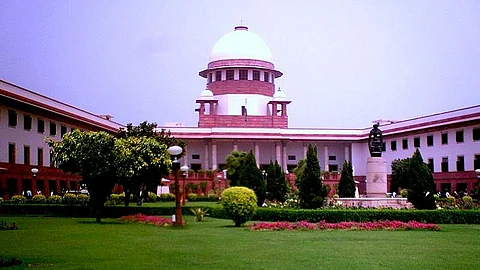The Supreme Court on Tuesday showed serious concern about the failure of state governments to make medical care and infrastructure affordable, highlighting specifically the exorbitant prices of medicines. The Court slammed the states for not ensuring the availability of essential medicines at affordable rates, especially for economically weaker segments of society.
These findings were reported at the hearing of a Public Interest Litigation (PIL) brought by a petitioner who had expressed concerns over private hospitals pressuring patients and their relatives to buy medicines, implants, and other medical items from in-house pharmacies at exorbitant prices. The petition complained of the unjustified mark-ups on vital medical items, further loading vulnerable populations.
A bench of Justices Surya Kant and N Kotiswar Singh censured this practice, terming it as exploitative and unjust to patients at their weakest moments. The judges emphasized that the affordability of essential drugs must be kept reasonable and affordable, especially for lower-middle-class citizens availing of public healthcare facilities.
Following the objections of the Court, some state governments, such as Odisha, Arunachal Pradesh, Chhattisgarh, Bihar, Tamil Nadu, Himachal Pradesh, and Rajasthan, filed counter-affidavits. They claimed that they were following the central government's price control measures for essential drugs and were making efforts to make them available at reasonable prices.
But the Supreme Court raised a doubt if the regulations were really being implemented properly at the state level. The Court observed that even after price control measures from the central government, several states were finding it difficult to deliver essential medicines at reasonable prices, especially in rural and economically underdeveloped pockets. The judges asked state governments to be more proactive in addressing the gap in healthcare accessibility and enhancing the affordability of essential medicines.
The Court has asked the central government and state governments to file complete reports regarding action being taken for solving this problem. The case will be re-examined in the upcoming weeks, and the Supreme Court is insisting upon a speedy yet effective solution towards making healthcare more affordable throughout the nation.
Further, the Supreme Court declined to pass compulsory orders to regulate private hospital medicine prices and consumables but motivated state governments and Union Territories (UTs) to formulate right policies to stop overcharging and supposed exploitation. The bench also recognized that cheap healthcare is an inherent right according to Article 21 of the Constitution, and price regulation of private hospitals lies in the ambit of policy. The Court stressed the need to strike a balance between protecting patient welfare and maintaining private sector participation in healthcare.


